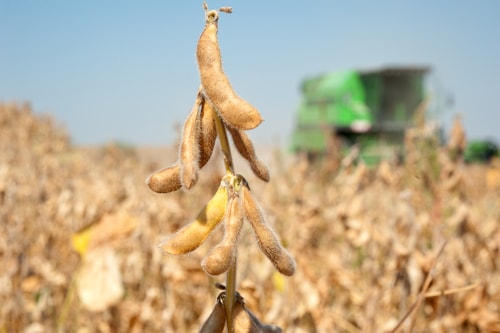A research center in North Dakota conducted more than a decade of trials
By Diego Flammini, Farms.com
In certain industries, there are buzz words that when said, can get the attention of anyone within an earshot.
In the financial sector, terms like “credit crunch” can give an adrenaline rush while when it comes to social media, words like “viral” get everyone’s attention.
In farming and agriculture – it’s yield.
Farmers want to know where to get it and how to get it.
When it comes to soybeans, researchers at North Dakota’s Carrington Research Extension Center (CREC) may have a solution – reduced tillage.
After 12 years of trials, Greg Endres, agronomist at the CREC, says it’s because the less tillage that occurs, there’s more water for the soybeans to absorb.
“There could be an inch or more of water available in the system in the soil that would help us,” he said in an interview with Farm & Ranch Guide.
Research and data compiled by Endres suggests no till soybeans can produce an average of 2.1 bu/acre more than when regular tillage is practiced.
Speaking of soybean yields…
The United Stated Department of Agriculture (USDA) said soybeans enjoyed a record crop in 2014. Farmers planted 6.8 million more acres of soybeans than in 2013.
The increased planting, paired with an astounding yield of 47.8 bu/acres, 2014 soybeans narrowly missed the four billion bushel mark.
To find out what 2015 has in store for soybeans and other crops, be sure to tune into Farms.com’s USDA WASDE webinar Tuesday, February 10, at 11:30am EST.
Farms.com’s Risk Management team lead by Commodity Strategist Moe Agostino will provide in depth coverage and analysis of the report and answer the questions farmers have about how to move forward with their crops.

Soybeans